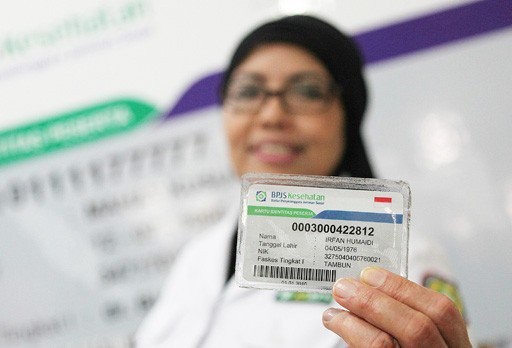
A four-month-old baby in need of emergency care died recently while the management of a West Jakarta hospital reportedly tried to locate hospitals partnering with the universal health coverage, or JKN program. Investigations are under way into the death of Tiara Deborah, as by law hospitals must treat emergency cases regardless of whether patients are covered by the JKN or can pay the necessary medical-fee deposit.
The parents claim they were unable to pay the requested initial payment of Rp 11 million (US$835.68) for the pediatric intensive care unit (ICU); the baby was suffering from severe coughing and breathing difficulties. The Mitra Keluarga Hospital in West Jakarta said the parents agreed to have her transferred to a hospital partnering with the JKN, however by the time a hospital was located the infant had died. The management stated the infant was born prematurely, and suffered from congenital heart disease and malnutrition. The patient, who had reportedly been treated elsewhere beforehand, had arrived in an unconscious state, its statement said.
The private hospital chain says it is in the process of joining the JKN program, which lists only 89 partners among 189 hospitals in Jakarta. The Health Ministry’s regulation states patients must be treated in emergency cases in any private or public hospital, and patients can be transferred to hospitals that are JKN partners when they have stabilized.
The public awaits the investigation findings, as part of efforts to reduce preventable deaths.
Meanwhile even as many have benefitted from the JKN, where the monthly premiums range from a mere Rp 25,500 to Rp 80,000, complaints including long waits leading to higher health risks particularly for poor and severely ill patients have persisted.
In June a resident of Bekasi, in West Java, gave birth to a stillborn baby in a caesarian operation that was finally conducted in North Jakarta after she was rejected by seven hospitals in Bekasi, including the public hospital, which had said its ICU was full. The hospital, RSUD Bekasi, was about to add 20 beds at its ICU facility to meet high demand, the management said. The patient was entitled to universal coverage but her insurance had expired, reports quoting the hospital said.
Many patients and their families are at their wit’s end in emergency situations. Rejected patients are confused by hospital management claims that they are out of beds, or that they have exceeded their “BPJS quota,” their daily share of patients covered by universal healthcare insurance managed by the Health Care and Social Security Agency (BPJS Kesehatan). Other reasons for rejecting patients include limited facilities to treat the patient’s emergency condition. However, patients often wonder aloud how hospital managements immediately seem to find space when they say they will pay for themselves.
Many problems still plague the JKN; while it remains in the red covering 170 million citizens, it must rush to reach the target of covering all 250 million Indonesians by 2019. At least in emergency cases patients have no recourse but to trust care givers and hospital managements to render life-saving assistance
